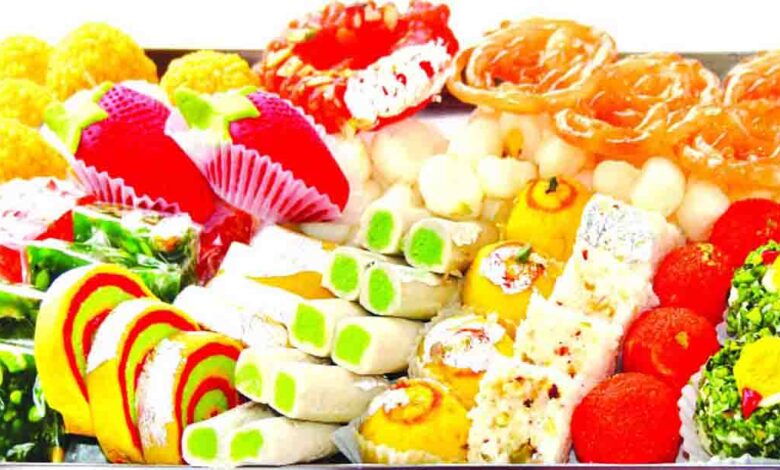85 per cent food items available for Holi are adulterated: SPECS

Tuesday, 07 March 2023 | PNS | DEHRADUN
Terming adulteration during Holi as a permanent ritual of present times, the Society of Pollution and Environmental Conservation Scientists (SPECS) has claimed that 85 per cent of the food items available in the market across the State during Holi are adulterated. Nearly 88 per cent of Mawa samples used in making Gujias during Holi were found to be adulterated in the laboratory test. The SPECS has made these claims on the basis of the laboratory tests of a total of 490 food samples collected that included red chilli powder, coriander, turmeric, milk, mawa, paneer, milk cake, coffee, Pure Ghee, tea, burfi, Batasha, Gulab Jamun, mustard oil and refined oil.
The samples were collected from various areas of Dehradun, Vikasnagar, Sahaspur, Doiwala, Rishikesh, Rajpur, Mussoorie, Haridwar, Haldwani, Almora, Nainital and Pithoragarh. The SPECS secretary Brij Mohan Sharma said that they collected 60 samples of mawa out of which, 53 were found adulterated with 88 per cent of adulteration. As per the report of these food samples issued by SPECS, the laboratory test of 30 mustard oil samples showed 100 per cent adulteration. Besides this, SPECS also collected 62 samples of colours which were sold in the market as herbal or organic colours. Sharma said that 49 samples out of 62 failed the laboratory test as the results showed traces of various toxins such as Mercury Sulphite in red colour, Copper Sulphate in green colour, Chromium Iodide in purple colour, Aluminium Bromide in silver colour and Lead Oxide in black colour.
These colours were quite toxic and can cause skin cancer, eye allergies, temporary blindness, renal failure, learning disability and bronchial asthma, said Sharma. He said that most Holi colours sold in the market are metal oxide or industrial dyes and when they get washed, they pollute soil and water bodies. Sharma said that one should avoid the usage of such toxic colours and must prepare their own Holi colours using natural products which are available easily like henna, turmeric and flowers as it was done traditionally rather than products being sold in the market.




